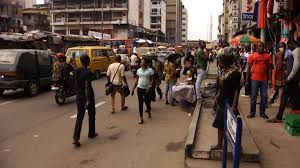As Nigeria grapples with persistent economic challenges, citizens across the country are expressing frustration over the toll these issues are taking on their daily lives. Rising inflation, high unemployment rates, and the removal of petrol subsidies have compounded financial hardships, leaving many struggling to make ends meet.
For many Nigerians, the skyrocketing cost of living is a primary concern. Inflation, which remains one of the highest globally, has driven up the prices of essential goods and services. Food prices, in particular, have become almost unaffordable for low-income households. According to the World Bank, inflationary pressures have pushed millions into poverty, with many families resorting to coping mechanisms such as reducing meals or withdrawing children from school to save costs.
The removal of petrol subsidies in 2023, though hailed as a necessary reform to rebuild fiscal space, has had a ripple effect on transportation and energy costs. For instance, commercial drivers have raised fares significantly, making commuting more expensive for workers and traders. Small business owners also report that higher fuel costs have increased production expenses, forcing some to shut down operations altogether.
Unemployment remains another pressing issue. Despite government efforts to create jobs through economic diversification and infrastructure development, opportunities remain scarce. Young Nigerians, in particular, face bleak prospects as job creation fails to keep pace with population growth. Many have turned to informal or gig work for survival, but these jobs often lack stability and fair wages.
The economic challenges have also exacerbated social inequalities. While reforms like foreign exchange (FX) adjustments and fiscal tightening are expected to stabilize the economy in the long term, their immediate effects disproportionately impact vulnerable populations. Analysts warn that without compensatory measures such as expanded social protection programs, many Nigerians will continue to bear the brunt of these reforms.
Despite these difficulties, there is cautious optimism about Nigeria’s economic future. The government’s ongoing reforms—such as FX market adjustments and efforts to boost non-oil revenues—are seen as steps toward long-term stability and growth. However, experts emphasize that sustained policy implementation and targeted interventions are crucial to addressing immediate hardships while laying a foundation for inclusive development.
For now, Nigerians continue to navigate an uncertain economic landscape with resilience but call for urgent measures to alleviate their suffering. Many hope that the government will prioritize policies that directly address rising costs and unemployment while ensuring that economic reforms translate into tangible benefits for all citizens.







